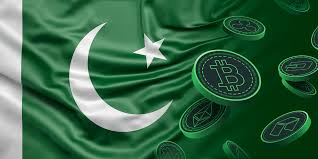
Pakistanis remain reluctant to embrace legal casinos primarily due to the country’s strong cultural and religious values. As a predominantly Muslim nation, Pakistan has deeply rooted beliefs that prohibit gambling. Islam explicitly condemns gambling, considering it haram (forbidden) because it promotes greed, addiction, and exploitation, while distracting individuals from their spiritual and social responsibilities. Religious leaders frequently emphasize this prohibition, reinforcing the view that gambling is not only an economic issue but a serious moral and spiritual transgression. For many Pakistanis, even the idea of legalizing casinos feels like an attack on their religious principles. The concept of state-sanctioned gambling contradicts centuries-old teachings that govern social behavior, leading many to view the move as unacceptable and harmful to society.
Fear of Social Decay
Many Pakistanis also fear that legalizing casinos would lead to social decay. Critics worry that opening up casinos would increase gambling addiction, family breakdowns, and financial ruin. In a society where the family unit and communal cohesion are highly valued, the idea of gambling becoming a state-sanctioned activity seems unsettling. These concerns aren’t just about the individuals who might gamble, but about the broader societal impact. There is a widespread fear that legal casinos would normalize gambling, leading to irresponsible spending, social instability, and the erosion of traditional family values. As a result, many believe that legal casinos would have a ripple effect on society, worsening social problems and undermining the moral foundation of Pakistani culture.
Economic and Political Concerns
Economic and political concerns further fuel the reluctance toward casinos in Pakistan. Some people argue that while legal casinos might attract foreign tourists and investors, the benefits would not necessarily trickle down to the public. Many Pakistanis worry that the revenues generated from casinos would be misused or misallocated, given the country’s history of corruption and poor governance. There’s also skepticism about whether the government could effectively regulate and oversee a gambling industry, ensuring that the profits benefit the country as a whole. Many believe that Pakistan should focus on boosting its economy through more productive sectors—such as infrastructure, education, and job creation—rather than relying on a vice-driven industry like gambling. There is a deep-rooted concern that legalizing gambling could foster corruption and criminal activity, further eroding trust in government institutions.
Lack of Awareness and Education
A lack of awareness and understanding about how legal casinos could function also contributes to the reluctance. Many Pakistanis don’t fully grasp how regulated gambling operates in other countries, where casinos are closely monitored and generate significant economic benefits, such as tourism and job creation. Without a clear understanding of how casinos could be responsibly managed, many people view the idea as risky and damaging. Public discourse around gambling often focuses on its illegal forms—such as underground betting and organized crime—without providing balanced information about how regulated casinos could work. This lack of information feeds into public fear and hesitation, preventing a more nuanced discussion about the potential benefits and drawbacks of legalizing casinos in Pakistan.
Political and Legal Barriers
Political and legal factors also play a significant role in Pakistan’s resistance to legal casinos. The current laws in Pakistan prohibit most forms of gambling under the Pakistan Penal Code, and there is little political will to challenge these laws. Religious and conservative groups, which hold significant influence in the country, would likely oppose any moves toward legalization. Any attempt to legalize casinos would require extensive changes to both the constitution and the legal system, a process that would be politically challenging. Given the sensitive nature of the issue, few politicians are willing to risk alienating their conservative base by pushing for such a significant policy shift. The legal framework in Pakistan simply does not support the development of a casino industry, and the political climate makes it unlikely that gambling laws will be relaxed anytime soon.
Conclusion
Pakistanis remain reluctant to embrace legal casinos due to a mix of cultural, religious, social, and political factors. The country’s strong Islamic values, fears about social decay, economic concerns, lack of education on regulated gambling, and political resistance all contribute to the hesitation. While some countries have successfully integrated legal casinos into their economies, Pakistan’s unique context makes it difficult for the nation to consider such a shift. For many Pakistanis, the risks—whether moral, social, or political—of legalizing casinos outweigh the potential economic benefits. Until there is a broader shift in public perception and a better understanding of how gambling could be regulated, it is unlikely that Pakistan will move toward embracing legal casinos as part of its mainstream society.
Experience Thrills and Big Rewards at KKClub Casino – Pakistan’s Premier Gaming Hub!



